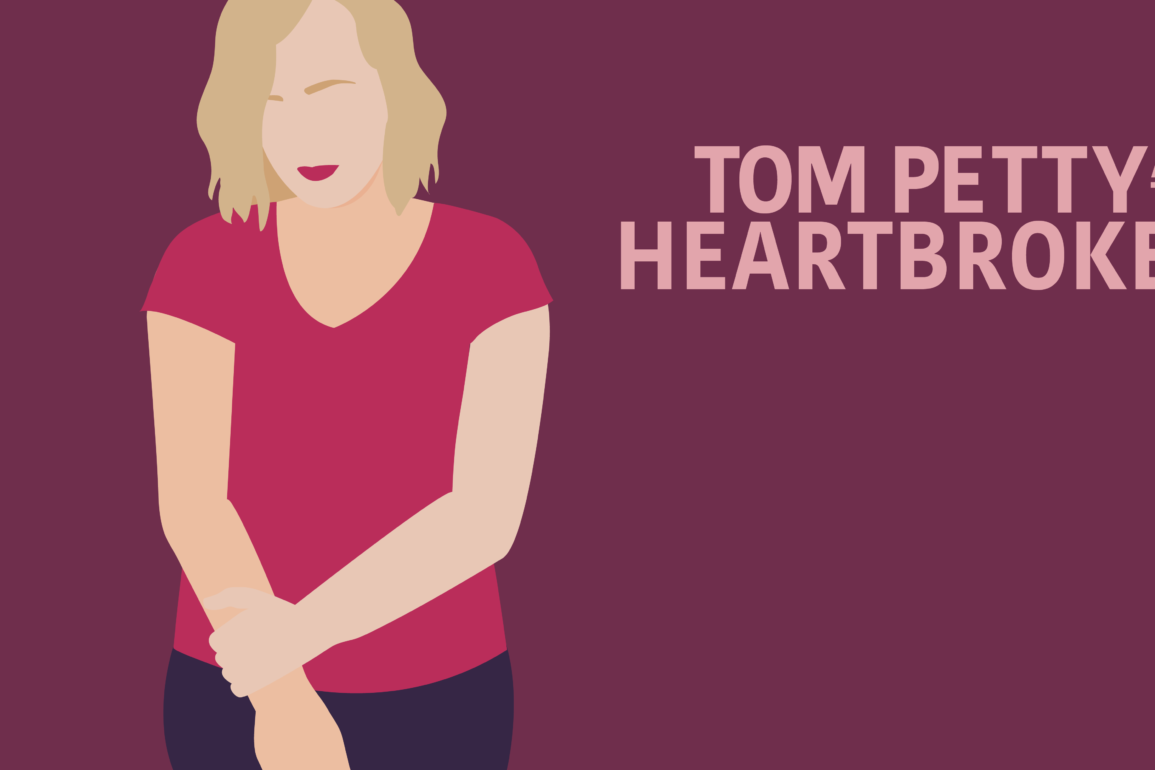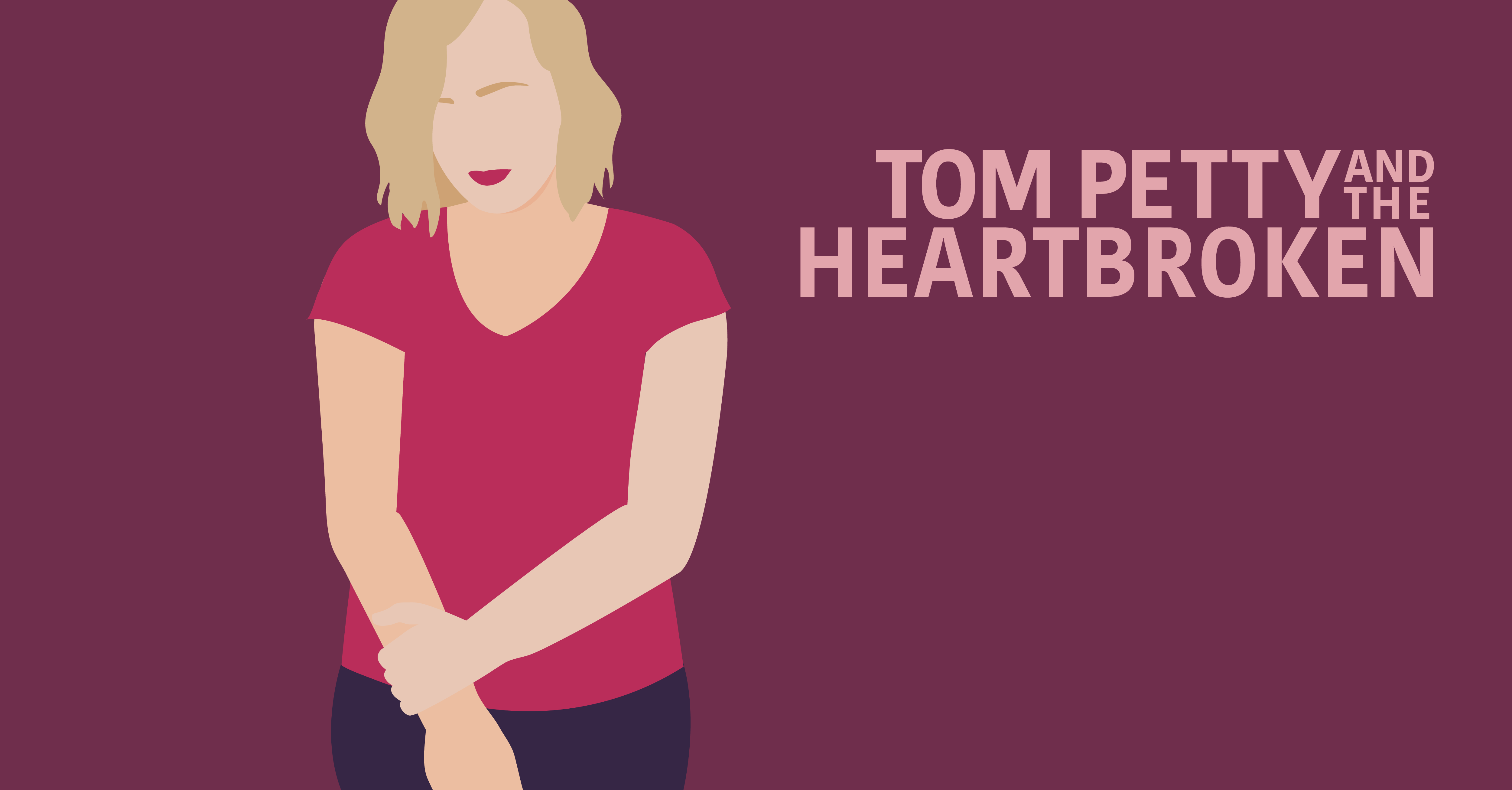When a celebrity dies, the death can impact those who have found comfort in their work.
Anji Holthouse arranged chips and salsa into decorative bowls and straightened wine spritzers on the refreshment table at her sister’s house. She was in good spirits as she prepared for her first skin care party, an event where a sales representative visits a guest’s home to sell beauty products. As she popped the legs of a plastic table into place, her phone buzzed with a notification from her friend: “Tom Petty is dead.”
She took to the internet in hopes of debunking the heart-wrenching news. After fracturing a hip during his final 2017 tour, Petty had developed an addiction to the painkillers. He had apparently not passed yet, but he had suffered from cardiac arrest. As she scanned articles and posts, she told herself he would make it. But her night was destroyed as she waited for news that only grew more grim, until Petty’s heart gave out and he died.
“It was like a loss of an era,” she says. “I grew up with him.”
People can feel tied to celebrities for a variety of reasons, says Lorraine York, a professor of cultural studies at McMaster University who specializes in celebrity theories.
“They, their actions, or their cultural productions may resonate with a particular moment in our lives,” she says. “They become part of our narrative.”
Anji first felt connected to Petty in 1992, when she was 16 and learning to drive. She and her stepdad would drive to and from school as Petty serenaded them through the speakers of a white Ford Courier. Listening to the music became a ritual. He reminds her of freedom. He is “that time in life between being a child and becoming an adult,” she says.
York says celebrities offer social cues to their fans about how to be or what not to do. It’s a loose form of social control. As people grow up, the voices on their playlists and the faces on their TV screens often influence identity and behavior. Humans learn how to act through observing others, and the people easiest to observe are on screens, news channels, and social media feeds.
Anji’s bond to Petty’s music continued to grow throughout the rest of high school.
“It didn’t take long for him to be one of my favorite people,” she says.
Petty’s music was the soundtrack to Anji’s life. One of her fondest memories he brings back is when her daughter, Madi, was about 4 months old. It was just her and her baby living in a one-bedroom apartment. Madi had colic, pain in the abdomen caused by intestinal obstruction or gas, and it would flair up every evening. Anji would microwave a blanket and swaddle Madi in it. She would turn on Petty and pace around the room, bouncing her until it passed.
“It was a very special bonding time for us,” she says. “His music was a story. When nothing else was stable, I always had that.”
It’s especially in those times lacking stability that celebrities are idolized.
“As culture shifts, we are finding comfort in new idols,” says Mark Young, a business school professor who specializes in entertainment at the University of Southern California. “This shift gives them power, not only over society, but also over individuals.”
Role models can often be people who have reached the ultimate status. They are wealthy and accomplished, exuding the American dream. Each celebrity represents a different variant of what someone is looking for in life, and they set the bar for what people strive to be.
Anji first saw Petty perform in Indianapolis when she was in high school, at what is now Bankers Life Fieldhouse. It was one of her first concerts, and she sat in the nosebleeds. In that moment, she finally felt like an adult, getting to experience the concert without her parents.
“He made a connection with the audience,” Anji says, “and it always felt like he was performing to me.”
York relates celebrities to gods who are tangible and imperfect. People can worship their performances while breathing the same air and standing in the same room. But when “gods” are so close, we can see their faults.
“These gods can fall, and fall spectacularly,” York says.
Anji put in her headphones the night Petty died, letting him sing her off to sleep. She listened through all the songs she loved most, along with some she’d never heard before. The next day, she didn’t go to work. She stayed home, listened to his music, and mourned the loss of the good times, guidance, and stability he provided.
The anniversary of Petty’s death, October 2, falls the day before Anji’s son’s birthday. As the one-year mark approached this fall, Anji had to come to terms with the death of her hero and the transition of her son, who was turning 18, into adulthood. She no longer has the stability Petty provided to get her through change. As she watches her son mature and move away, this is another constant she will be losing.
Another part of what made coming to terms with the death so difficult was Petty’s opioid addiction. To Anji, this made Petty’s death especially sad.
“I don’t want anyone to think badly of him,” she says. “It was a real addiction.”
Young says people who truly believe in particular celebrities might overlook some problems the person has dealt with.
“You forgive them or look the other way,” he says.
Anji doesn’t think she’s recovered from the loss of Tom Petty. She was able to see him in concert before he died, but she mourns that her kids won’t ever be able to. She had been looking forward to experiencing a performance alongside her daughter.
“I would like to say I’m not crying about it, but I kind of have been,” Anji says. “It’s weird to me because I have never done that with someone I don’t personally know.”
York says it’s nothing new for nations to mourn their heroes. The rise of social media, though, has made this process more mediated and widespread. Celebrities can be constantly tracked as they post and as people post about them. Seeing more aspects of an idol’s life can cause fans to feel more connected to them.
Even though Anji bought two copies of Petty’s biography, one for her and one for her stepdad, she didn’t like how people were capitalizing on the death. Instead of the thoughtful tributes she’d seen to celebrities like Prince or Michael Jackson, most of what she saw about Petty’s death on social media was trying to sell something.
The death of a celebrity usually contributes to a spike in the attention their work receives. In addition to mourning fans, this time also attracts people who never got the chance to explore the celebrity’s work.
Anji hopes everyone has someone like Tom Petty in their lives. To her, being able to identify with and claim celebrities as something personal provides comfort. They are a companion in the lonely times, a comfort in the hard times, and a reminder for the happy times. When Anji starts to feel like she’s lost those things along with Tom Petty, she finds peace in sifting through his music and seeing the impact he made while alive.





